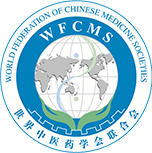Predicting the 7th day efficacy of acupoint application of Chinese herbs (Xiao Zhong Zhi Tong Tie) in patients with diarrhea – A machine-learning model based on XGBoost algorithm
Release time: Jul 21,2022
Reading volume: 1528
Abstract :
Objective: Extreme gradient boosting (XGBoost) was used to predict the 7th day efficacy of the acupoint application (AP) of Chinese herbs (Xiao Zhong Zhi Tong Tie) in patients with diarrhea. Materials and Methods: We consecutively collected medical records of patients with diarrhea nationwide on the Chun Bo Wan Xiang cloud platform from August 22 to November 5, 2020. Demographic and clinical data and the fecal properties were included in this study. We established the XGBoost model to predict the 7th day efficacy of AP in patients with diarrhea. The XGBoost model was evaluated using the area under the receiver operating characteristic (ROC) curve (AUC). We next compared the performance of XGBoost with that of artificial neural network (ANN), ANN + boosting, ANN + bagging, and support vector machine (SVM). Results: The XGBoost model provided a prediction accuracy of 84.86% (95% confidence interval = 82.74% to 86.81%) and the ROC curve analysis showed an AUC of 0.81. The top-three variables with the highest importance are age, duration of diarrhea, and region (North). Our study revealed that XGBoost was not superior to ANN, ANN + boosting, ANN + bagging, and SVM. Conclusions: The established XGBoost model for predicting the 7th day efficacy of AP in patients with diarrhea exhibited good accuracy and precision, which can be used for efficacy prediction.
Keywords: Acupoint application, diarrhea, efficacy prediction, XGBoost, Xiao Zhong Zhi Tong Tie
[FULL TEXT]
[FULL TEXT]

